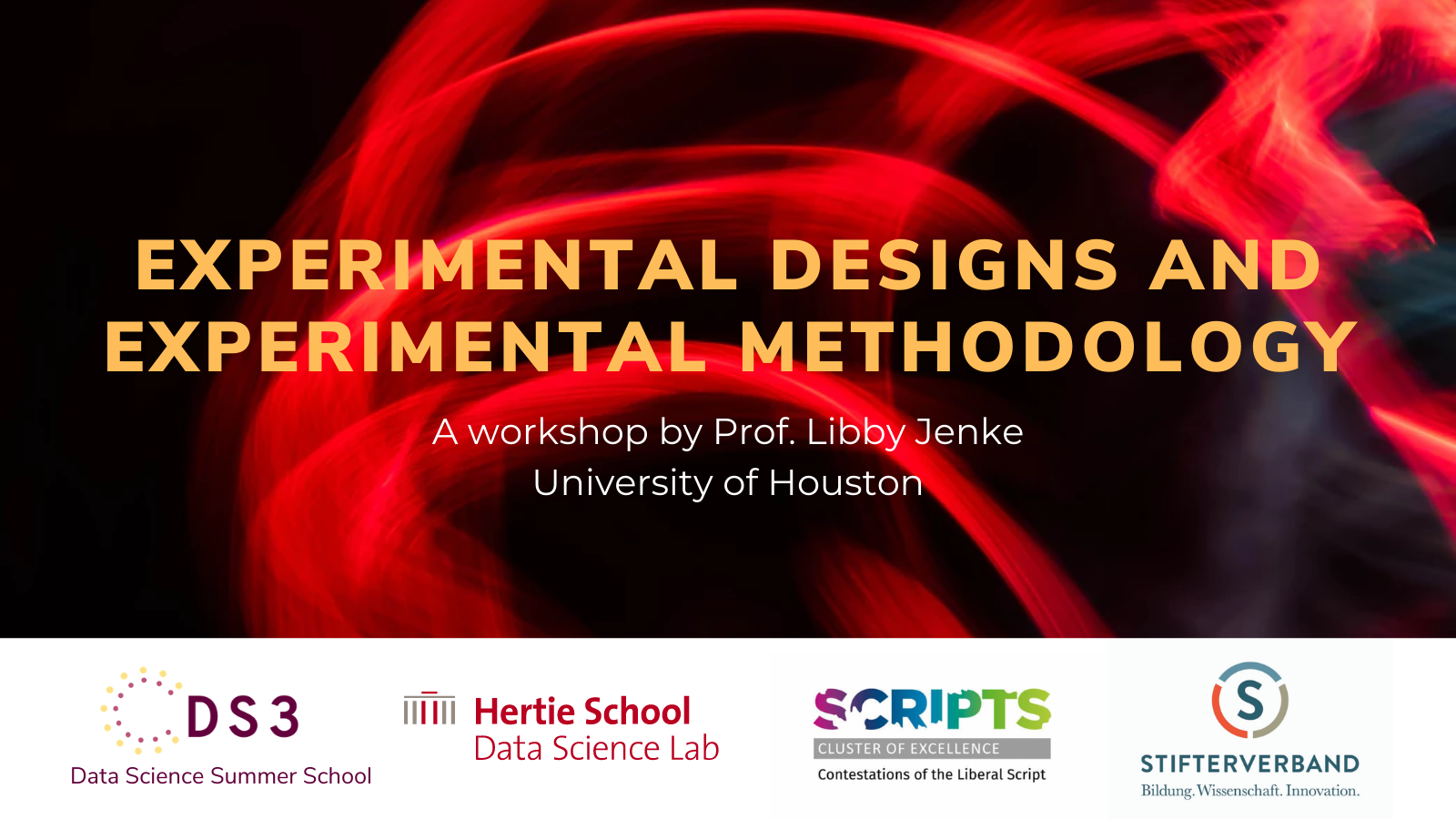The workshop will take place on July 26th, 03:30 PM CEST on Zoom
Course Objectives
This section of the workshop gives an introduction to and also covers some emerging developments in experimental methods. When covering both elements, I will emphasize their practical application to research. The goal of the course is for students to gain a better understanding of how to correctly implement an experiment and tools that they can use immediately in their research.
Course Content

The course will begin by covering the basics of causal inference and discuss experiments as a key approach. We will go over principal elements of experiments, such as the types of external validity and what the field has found about the generalizability of convenience samples, particularly online convenience samples. The course will also focus on the importance of pilot studies, designing treatment variables and manipulation checks, and choosing between within- versus between-subject designs. I will additionally highlight some frequently made mistakes in experiments, such as selectively dropping experimental subjects and misunderstandings of balance testing.
After covering these basic components, we will explore some recently developed methodological approaches. First, we will explore conjoint analysis. And then we will discuss eye-tracking and mouse- tracking and their incorporation into political science.
Instructor

Prof. Libby Jenke
Libby Jenke is an Assistant Professor of Political Science at the University of Houston. Her Ph.D. is from Duke University in political science, where she was a member of Scott Huettel's neuroscience laboratory in Duke's Psychology and Neuroscience department. She is also a member of the Political Psychology Research Group (PPRG) at Stanford University. She is an experimental methodologist, using methods including eye-tracking and mouse-tracking to obtain direct measures of decision processes, information accrual, and attention. She studies questions of voter behavior, such as the role of identity in voter choice, gender and race's effect on candidate evaluations, and variability in the voting models used by citizens.
Schedule
Session Starts
Experimental Designs and Experimental Methodology (Part I)
Short Break
Session Continues
Experimental Designs and Experimental Methodology (Part II)
Session Ends
Content Licensing
All workshop materials and recording are under Creative Commons Attribution-NonCommercial-ShareAlike 2.0 license. You are free to share — copy and redistribute the material in any medium or format, and adapt — remix, transform, and build upon the material. However, you must give appropriate credit, provide a link to the license, and indicate if changes were made. You may do so in any reasonable manner, but not in any way that suggests the licensor endorses you or your use. You may not use the material for commercial purposes. If you remix, transform, or build upon the material, you must distribute your contributions under the same license as the original.

